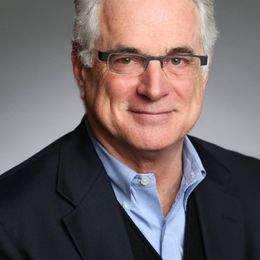What Millennials Want the Government to Do About Long-Term Care
Two surveys show what they support and what's stressing millennial caregivers
“What’s wrong with young people today?” may be a time-honored trope that millennials are now saddled with, but I think it should be banned from popular discourse after studying the public policy implications of two recent reports on millennial caregivers. That’s right: Millennial caregivers.

One in four of the nation’s 40 million family caregivers is a millennial, according to the AARP Public Policy Institute report, Millennials: The Emerging Generation of Family Caregivers. And, based on my reading of an Associated Press-NORC Center for Public Affairs Research at the University of Chicago survey of millennials, this generation of Americans in their 20s and 30s has definite ideas of what the federal government and employers should do to help people deal with the financial and personal strain of long-term care.
Millennials May Lead Government to Act on Long-Term Care
Millennials could be a serious force for encouraging policymakers to pass legislation targeted at relieving the financial burden of caregiving, while pushing employers to embrace caregiving as a workplace benefit. Since Medicare generally doesn’t cover long-term care and Medicaid only offers benefits to the lowest-income Americans, the changes favored by millennials would offer welcome financial relief to family caregivers of any generation.
Millennial caregivers pay a substantial price for caregiving, according to AARP. Its study found that 73 percent of millennial caregivers work, and more than half of them say caregiving has interfered with their jobs. They’ve received warnings about performance, turned down promotions and taken other actions that could jeopardize their long-term financial security.
AARP figures millennials pay an average of $6,800 a year in out-of-pocket costs to meet their caregiving responsibilities — a higher percentage of income than other generations.
Top Sacrifices of Millennial Caregivers
The AP-NORC study, Younger Adults’ Experiences and Views on Long-term Care (funded by The SCAN Foundation), said the top three sacrifices among millennial caregivers surveyed were free time, leisure and sleep; a sense of self, personal life or privacy and career work or education.
“How do I balance work and caregiving is a big issue,” says Jean Accius, AARP’s vice president for independent living/long-term services and supports.
Where Millennials Stand on Public Policy and Long-Term Care
Just over 60 percent of millennials AP-NORC surveyed favored a variety of public policy proposals as well as a recent law aimed at helping people with the costs of long-term care. But fewer millennials supported these than did people 40 and older; 70 to 81 percent of the older respondents endorsed these ideas.
Take Medicare Advantage, the comprehensive Medicare health plan offered through private insurers with a designated network of health providers. Recent legislation known as The CHRONIC Act — Creating High-Quality Results and Outcomes Necessary to Improve Chronic Care — lets Medicare Advantage add long-term care supports and services to coverage. The AP/NORC survey found that 65 percent of millennials and 81 percent of people 40+ like that idea.
Similarly, 62 percent of millennials surveyed approved of tax breaks for purchasing long-term care insurance (such write-offs are limited today to certain taxpayers who qualify); 75 percent of people 40+ liked this idea.
A full 60 percent of millennials (and 70 percent of people 40+) said they’d actually like to see a government-administered long-term care insurance program, similar to Medicare.
What Millennials Want Employers to Do on Long-Term Care
Millennials are especially enthusiastic about employers stepping up; 81 percent said employers should offer long-term care insurance plans as a benefit. And 62 percent want to see such a benefit made portable, like COBRA is for employer-sponsored health insurance; 74 percent of those 40+ felt this way.
But most of these ideas will only help at the margin, at best.
For instance, the private long-term care insurance market is shrinking; insurers selling the policies are reducing benefits and hiking premiums. And although COBRA turns an employer-sponsored health insurance plan into a portable benefit, it’s an expensive option, especially if an employee has lost his or her job.
Movement in Washington to Help Caregivers and Care Recipients
Fortunately, there’s been some activity stirring in Washington to help family caregivers and people needing long-term care.
The legislative change that opened up Medicare Advantage to long-term care is potentially a big deal. And the Recognize, Assist, Include, Support and Engage (RAISE) Family Caregivers Act, signed into law this year, directs the U.S. Department of Health and Human Services to create an advisory council to recommend strategies that would help family caregivers. Employers will have a seat on this council, and they seem to have heard their employee’s caregiving message.
“Employers see the value of support,” says Accius. “They lose talented workers. It’s a retention opportunity.”
An ambitious legislative long-term care draft proposal was recently unveiled, too.
Representative Frank Pallone (D-N.J.) is working on a universal long-term care bill which would make all adults over 65 eligible for a $100 daily cash benefit paid for by the federal government, after a two-year waiting period. Since the money wouldn’t kick in for two years, the benefit is designed to help caregivers assisting elders suffering from serious mental and physical disabilities. A clear drawback: funding for the universal benefit is as yet undefined. (The Urban Institute’s Howard Gleckman offers a savvy overview here.
Congress is far from receptive to ramping up another universal government benefit these days. Nevertheless, the odds are improving that family caregivers may get greater support from policymakers and employers over the next few years. Nowhere near what’s needed. But a step forward.
Still, even a modest move counts as progress these days.


